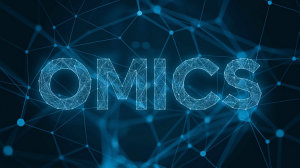Omics: Recursive Framework of Systemic Knowledge
About this ebook
Origin and Concept of Omics
Rooted in its etymology, Omics is derived from the Greek suffix "-ōmē," signifying comprehensive, system-wide analysis. Unlike "-ics," which denotes a discipline or practice, "-omics" embodies a holistic study of interconnected systems, marking the shift from reductionist methodologies to recursive, systemic integration.
Omics transcends traditional disciplinary boundaries by incorporating:
Nomic Principles → The governing laws that structure systems
Axionomics → The axiomatic foundations of universal knowledge
Isonomics → The equilibrium and systemic correspondence between knowledge structures
Lanomics → The linguistic singularity as the absolute organizing principle of knowledge
Atonomics → The atomic and quantum foundations of physical and informational structures
The Recursive Framework
Unlike traditional static models, Omics functions as a self-referential, recursive framework, ensuring that each domain influences and is influenced by the others. This meta-analytical structure allows for deep comprehension of complex systems by mapping recursive interconnections and self-organizing patterns across biological, physical, linguistic, and computational sciences.
Key Integrative Components:
Unified Omics Intelligence → AI-driven modeling of systemic relationships
Quantum-Assisted Universal Mapping → Integration of energy, matter, and informational coherence
Biological and Genetic Systems Integration → Standardizing complex biological structures into a universal systemic framework
As a meta-structure, Omics governs recursive, self-regulating, and systemically complete knowledge models, ensuring structural integrity and sustainable systemic coherence. This revolutionary framework unites seemingly disparate domains into a singular, dynamic system, redefining scientific analysis, knowledge synthesis, and interdisciplinary integration for an era of advanced intelligence and universal comprehension.
About the author
Ronald Legarski is a visionary systems architect, interdisciplinary researcher, and pioneer of recursive knowledge frameworks, specializing in complex systems analysis, computational modeling, quantum information theory, and structured linguistic intelligence. As the Founder of SolveForce and Co-Founder of Adaptive Energy Systems, Legarski has been instrumental in developing self-regulating, recursive models that unify knowledge, technology, and natural systems into an integrated intelligence structure.
As the creator of Omics, Legarski introduces a revolutionary recursive framework where nomic principles, axiomatic structuring, quantum equilibrium, linguistic singularity, and atomic foundations coalesce into a singular, recursive knowledge framework. His research explores AI-driven systemic intelligence, blockchain-backed scientific standardization, and quantum-assisted energy mapping, ensuring continuous optimization of interdisciplinary information networks.
With expertise spanning quantum mechanics, computational linguistics, formal logic, biological systems modeling, and decentralized governance, Legarski's work redefines the integration of knowledge domains through recursive system optimization and meta-structural synthesis. His leadership in Adaptive Energy Systems applies Omics principles to quantum-assisted computing, AI-driven biological intelligence modeling, and recursive economic standardization, while SolveForce continues to advance AI-driven information structuring, telecommunications, and decentralized systemic governance.
Through his research, writing, and technological innovations, Ronald Legarski pioneers a recursive, interdisciplinary framework where structured intelligence continuously refines itself, ensuring universal knowledge integration, systemic coherence, and interdisciplinary scientific standardization. His vision for Omics establishes the foundation for the next evolution of knowledge, computation, and self-regulating intelligence systems, creating a recursive, self-sustaining framework where the interconnectedness of all sciences and disciplines is unified into a single model of systemic truth.








